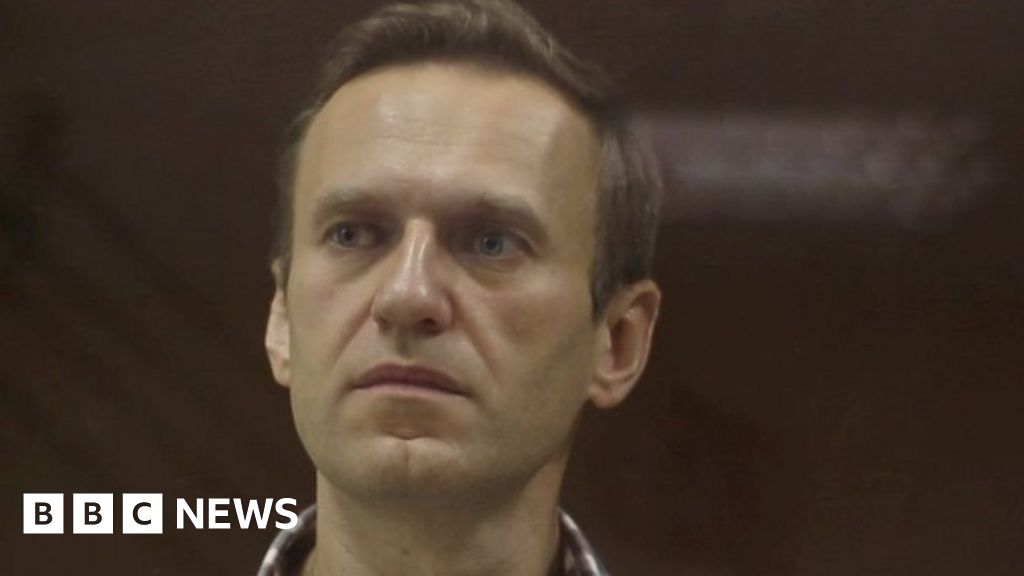
The US has announced sanctions on Russians over the poisoning of opposition leader Alexei Navalny.
The measures target a number of Russian government officials and entities and are being co-ordinated with similar moves by the EU, US officials said.
They said US intelligence had concluded that the Russian government was behind the near-fatal nerve agent attack on Navalny in Siberia last year.
He is the most high-profile critic of President Vladimir Putin.
Moscow denies involvement in his poisoning and disputes the conclusion, by Western weapons experts, that the nerve agent Novichok was used.
What did the US officials say?
Speaking to reporters during a conference call, they said seven senior Russian officials and 14 entities involved in chemical and biological production were being targeted by sanctions. They gave no further details.
"Russia's attempt to kill Mr Navalny follows an alarming pattern of chemical weapons use by Russia," one of the administration officials said.
They are the first sanctions imposed on Russia by the administration of President Joe Biden.
He has taken a tougher stance than his predecessor Donald Trump towards President Putin.
After phoning his Russian counterpart last month, Mr Biden said he had made it clear the days of the US "rolling over in the face of Russia's aggressive actions, interfering with our elections, cyber-attacks, poisoning citizens are over".
What about the European Union?
In a co-ordinated move, the EU announced on Tuesday that it had targeted four Russian government officials.
They are Alexandr Kalashnikov, the head of the Russian prison system, Alexandr Bastrykin, chairman of the Investigative Committee, Chief Prosecutor Igor Krasnov, and Viktor Zolotov, who heads of the National Guard.
The sanctions include travel bans and asset freezes.
The BBC's Kevin Connolly in Brussels says they are a compromise between the Baltic states, which see Russia as a dangerous neighbour, and countries - notably Germany - which rely on Russian gas imports.
Who is Alexei Navalny?
An anti-corruption campaigner, he has long been the most prominent face of Russian opposition to Mr Putin's rule.
The 44-year-old blogger has millions of followers on social media. He managed to get some of his supporters elected to councils in Siberia in 2020.
Navalny was poisoned and fell into a coma during a flight to Siberia last August. He was airlifted to Germany, where he recovered. In January he decided to return to Russia and was arrested on arrival.
A court last month found that Navalny had violated the terms of an earlier sentence for embezzlement by not turning up to the probation office while he was being treated in Germany.
His suspended sentence was turned into an actual prison term of two-and-a-half years. Last week he was sent from detention in Moscow to a penal colony to serve out the sentence.
Navalny and his supporters say all charges against him are politically motivated. President Biden and EU leaders have called for his immediate release.
https://news.google.com/__i/rss/rd/articles/CBMiM2h0dHBzOi8vd3d3LmJiYy5jby51ay9uZXdzL3dvcmxkLXVzLWNhbmFkYS01NjI1NTY5NNIBN2h0dHBzOi8vd3d3LmJiYy5jby51ay9uZXdzL2FtcC93b3JsZC11cy1jYW5hZGEtNTYyNTU2OTQ?oc=5
2021-03-02 16:06:09Z
52781410578278
Tidak ada komentar:
Posting Komentar